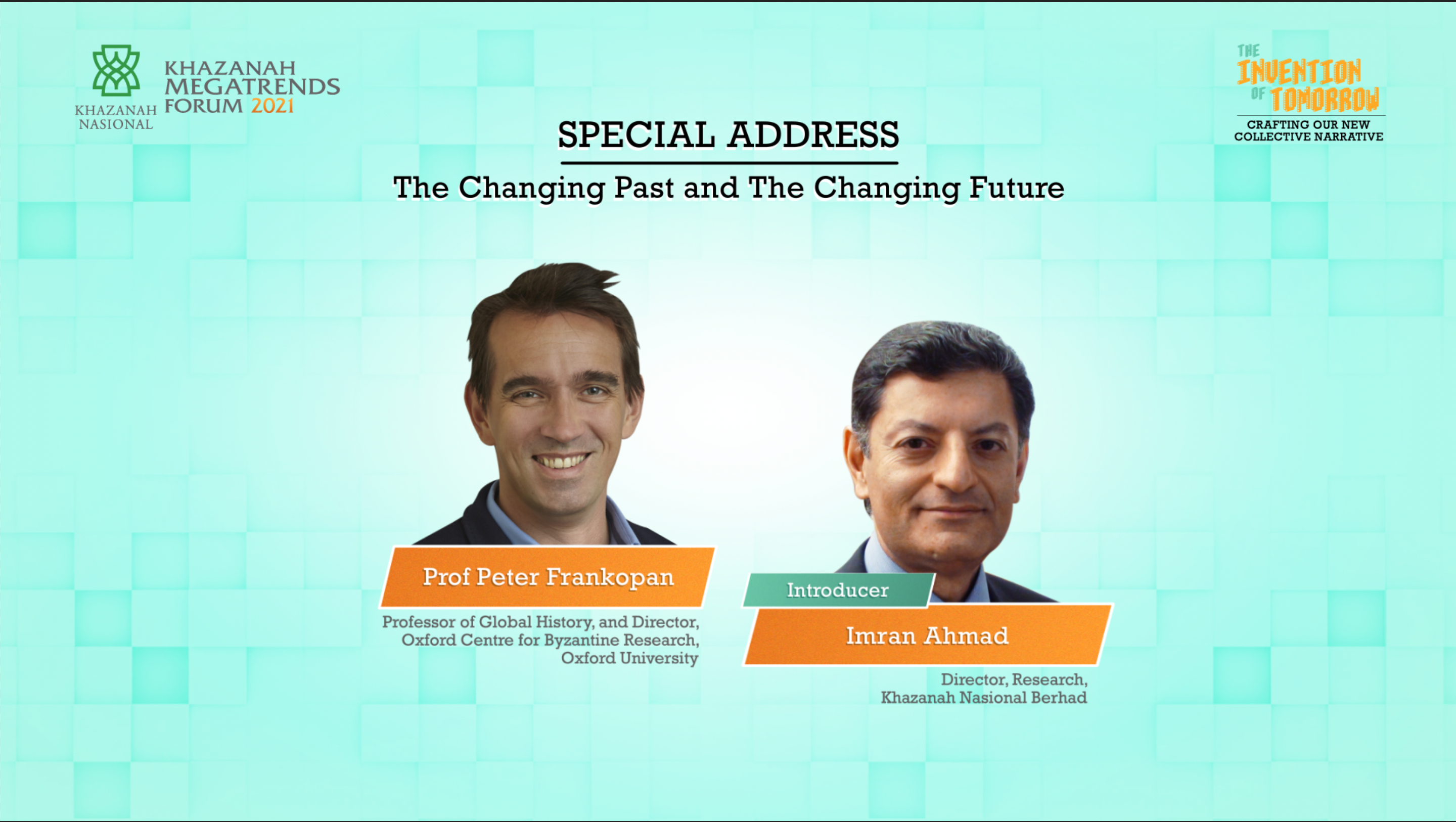Session Summary
Downturn is not unique is historical timeline, but important to understand impact of pandemic.
The world when Covid-19 struck looks unfamiliar because of the timeline of history that we compare to.
For the UK, this downturn was the sharpest downturn in nearly 400 years and with Italy it was the lowest bond yields return since the 14th century. The depth of downturn is not surprising as downturns happen frequently in the context of a longer historical timeframe. What is more important is to understand the implications of a downturn.
The pandemic has accelerated the changes that were already happening pre-pandemic,
which led people to behave differently. For example, the pandemic decreased cash usage and accelerated the cashless trend as well as e-commerce. This is evident in Malaysia, where e-commerce has grown five-fold since 2016. This has implications to supply chains, brick and mortar stores as well as labour markets.
Asian century is about to begin.
Asia is rising.
The share of big global GDP has switched from the Western countries to the Emerging Seven. Asia has room to increase income and scale for growth compared to developed markets, albeit in different velocities.
Countries need to be aware of security risk and climate change.
Regional tension and sovereignty are real concerns, especially due to the “Cold War” between China and US. But it is important to maintain our independence from external pressure. Impact on climate change needs to be thought through as the rise of populations and mega cities increase fragilities and present big challenges.
Deglobalisation has major implications and short-term pain.
Interest to onshore production after supply chain disruption.
The pandemic highlighted the heavily reliance on supply coming from the East, so there is a possibility that Western firms will move their workforce out of Asia to produce new jobs in developed countries.
Cities benefit from interconnected trade links.
Rise of civilizations is associated with global trade. Trade connections allow different civilizations to share products, spices, ideas and even cultures. Countries ought to think ahead about maximising positive impacts whilst mitigating the risks post-pandemic.
Crisis preparedness requires forward thinking.
If countries are always reacting to problems, rather than proactively thinking about their immediate fragilities, it would be extremely difficult to overcome these problems. The biggest hurdles aren’t in economy, but in political decision making.
